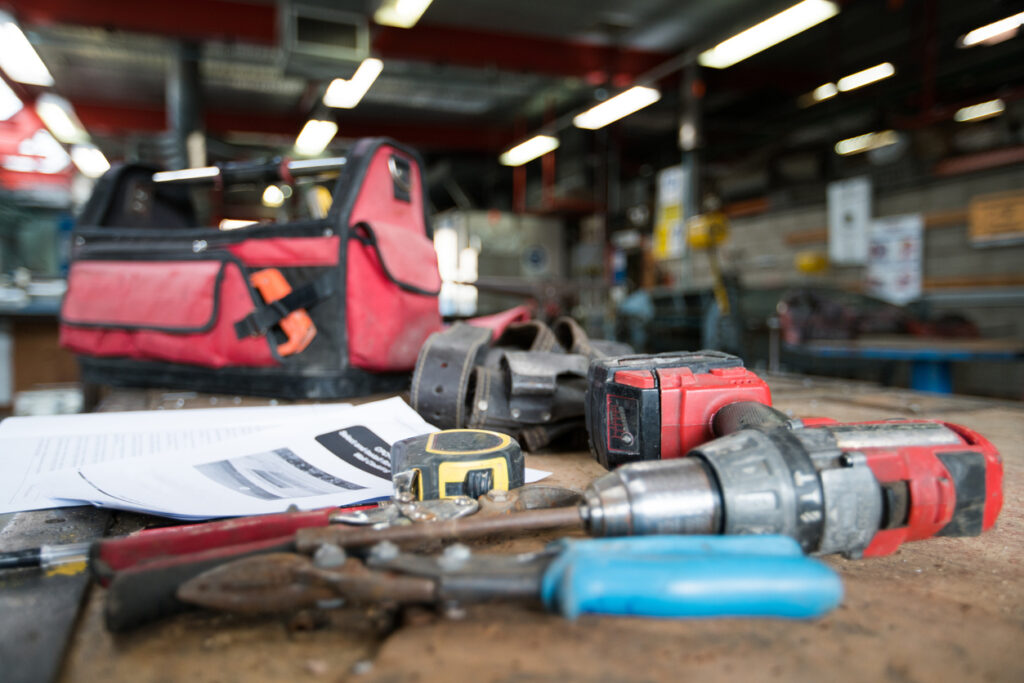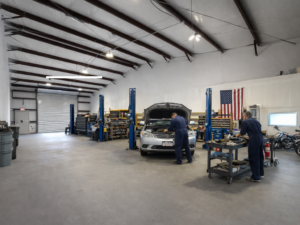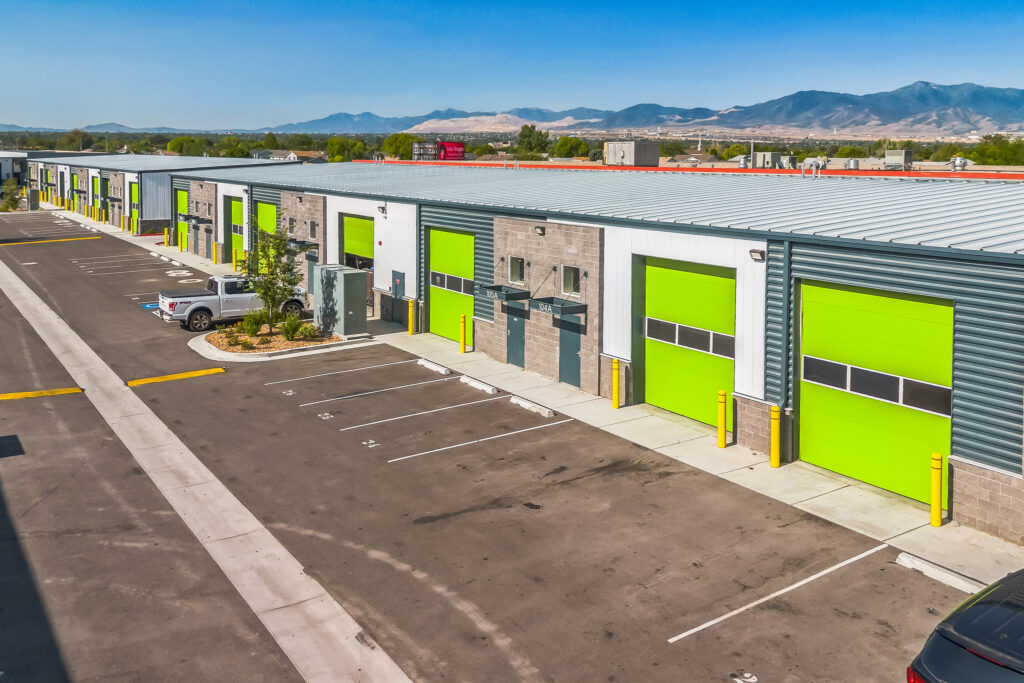For contractors, tradespeople, and small business owners, tools aren’t just gear—they’re how you make a living. A stolen drill, a damaged welder, or lost specialty equipment doesn’t just cost money to replace—it can stop your work completely.
That’s where tools and equipment insurance comes in. It’s designed to protect the equipment you rely on every day from theft, loss, or damage, giving you the confidence that one bad day won’t derail your business. In this post, we’ll explain what this coverage is, what it protects, and why it’s an essential safeguard for anyone working in the trades.
What Is Tools and Equipment Insurance?
Tools and equipment insurance—sometimes called contractor’s equipment insurance—is a type of coverage that protects the gear your business depends on. It covers items like power tools, hand tools, machinery, and specialty equipment against risks like theft, accidental damage, or loss from events like fire or flood.
Unlike general liability insurance, which protects you against claims from clients or third parties, tools and equipment insurance is specifically about protecting your own property. Whether your gear is stored in your vehicle, at a job site, or in your shop, this coverage helps ensure that if something happens, you can replace your tools quickly and keep working.
For anyone who relies on expensive or specialized equipment, this policy isn’t just a “nice to have”—it’s a critical part of keeping your business moving forward.
What Does Tools and Equipment Insurance Cover?
The exact details of a tools and equipment insurance policy depend on your provider, but most plans are built to protect against the real risks tradespeople face every day. Tools are often stored in vans, left on job sites, or used in tough environments where accidents can happen. Without coverage, replacing even a few high-value items could wipe out your profits for weeks. That’s why tools and equipment insurance is designed to step in when the unexpected happens.
Theft
One of the biggest risks for contractors and tradespeople is stolen tools—whether from a work van, job site, or even a locked shop. Tools and equipment insurance helps cover the cost of replacement so you can get back to work without delay.
- Example: Your van is broken into overnight and thousands of dollars’ worth of power tools are stolen. Your policy covers the replacement costs.
Accidental Damage
Sometimes the damage comes from a simple mistake—like dropping a tool or accidentally damaging machinery on the job. With insurance, you don’t have to cover the full cost of repair or replacement out of pocket.
- Example: A heavy drill falls and cracks beyond repair. Your policy steps in to cover the cost of a replacement.
Fire, Flood, or Other Events
Tools and equipment insurance can also cover loss or damage caused by events like fire, flood, or vandalism, depending on the policy.
- Example: A small fire in your workshop damages your saws and compressors. Your insurance helps pay for replacements.
Coverage On the Move
Many policies extend coverage beyond your shop to include equipment stored in vehicles or brought to job sites—critical for tradespeople who move from project to project.
- Example: A set of tools is stolen from a construction site after hours. Coverage applies even though the items weren’t in your shop.
Coverage limits will depend on the value of your equipment and the specifics of your policy, but the goal is always the same: to protect the investment you’ve made in your tools so one incident doesn’t stop your business cold. The right policy gives you more than just financial support—it gives you the peace of mind that if something goes wrong, you’ll be able to bounce back quickly and keep serving your clients.
What’s Not Covered By Tools and Equipment Insurance
While tools and equipment insurance provides broad protection, it doesn’t cover everything. Understanding the limits of your policy is just as important as knowing what it does protect. That way, you won’t be caught off guard if something happens that falls outside your coverage.
Here are the most common exclusions:
Normal Wear and Tear
Every tool wears down with use—blades dull, batteries fade, motors burn out. These are considered expected costs of doing business and aren’t covered by insurance.
Intentional Damage
If tools are damaged on purpose, by you or someone else under your direction, the policy won’t apply. Insurance is designed to cover accidents and unforeseen events, not deliberate actions.
Unlisted or Unscheduled Items
Some policies require you to list (or “schedule”) each covered item. If you forget to include certain tools, they may not be covered. For businesses with high-value or specialized gear, it’s especially important to keep your policy updated.
Very High-Value Equipment
Standard policies often include coverage limits that may not fully cover very expensive or specialty machinery. These items usually need to be added separately, with specific coverage limits.
Certain Types of Losses
Depending on the provider, losses from specific events—like earthquakes, floods, or employee dishonesty—may not be included unless you purchase additional coverage.
In short, tools and equipment insurance protects against unexpected risks like theft, damage, or major loss—but it won’t replace basic maintenance, cover items you don’t declare, or protect against every possible scenario. Reviewing the fine print with your provider ensures you know exactly where your coverage starts and stops.
Who Needs Tools and Equipment Insurance?
The short answer: anyone who relies on tools, machinery, or specialized gear to make a living. If your equipment is essential to getting the job done, then protecting it with insurance should be a priority. Without it, a single theft, accident, or disaster could stop work in its tracks and cost thousands of dollars in lost income and replacement costs.
Here are some of the people and businesses that benefit most from this type of coverage:
Contractors and tradespeople
Carpenters, electricians, plumbers, welders, and HVAC technicians depend on their tools every day. A stolen drill or damaged welder isn’t just a setback—it can mean canceled jobs and lost clients. Tools and equipment insurance keeps them working, even after an unexpected loss.
Small businesses with specialty equipment
Woodworking shops, machine shops, and repair businesses often use equipment that’s both expensive and difficult to replace quickly. Insurance ensures that if disaster strikes—whether it’s a fire, flood, or break-in—you can recover and get back to work faster.
Mobile businesses
If you store tools in a work van or trailer and travel from site to site, you face a higher risk of theft and damage. Mobile operations benefit from coverage that extends beyond your shop walls, protecting gear while it’s on the move.
Construction crews and subcontractors
Busy job sites can be chaotic, with multiple teams using and moving equipment. Tools may be left out overnight, passed between workers, or exposed to unpredictable conditions. Having insurance protects you from losses that might otherwise come down to finger-pointing.
Independent makers and fabricators
Furniture builders, metalworkers, artists, and prototype developers often invest heavily in specialty tools that are critical to their craft. Losing this equipment could mean missing deadlines, disappointing clients, or halting production entirely.
Service-based businesses
Even businesses outside of construction and manufacturing—like IT contractors, appliance repair technicians, or digital services providers—rely on costly equipment. Coverage ensures they can replace laptops, diagnostic tools, or technical gear without breaking their budget.
In reality, almost any business that relies on tools should consider coverage. If losing your gear would slow down or stop your work, tools and equipment insurance is not just helpful—it’s essential. It allows you to focus on doing the work you’re best at, knowing that if something happens to your equipment, you’ll have the resources to recover quickly.
Why It’s Important
For tradespeople and small business owners, tools aren’t optional—they’re the backbone of your work. Without them, projects stall, deadlines slip, and income stops. Tools and equipment insurance is important because it helps protect not just your gear, but also your ability to keep working and earning.
Tools equal income
Every saw, drill, or welder you own represents more than its purchase price—it represents the jobs you can take on and the money you can earn. Insurance ensures that if your tools are stolen or destroyed, you can replace them quickly and keep projects moving.
Theft is a common risk
Unfortunately, tool theft is one of the most frequent risks contractors face. Work vans and job sites are prime targets for thieves, and even locked storage isn’t always safe. Without insurance, replacing stolen tools comes directly out of your pocket.
Protects against downtime
If your equipment is lost or damaged, you might not just lose tools—you could lose days or weeks of work while you find replacements. Insurance helps reduce downtime so you don’t miss out on contracts, income, or client trust.
Safeguards your investment
Most tradespeople invest thousands—sometimes tens of thousands—into their gear over time. Tools and equipment insurance is a way to protect that investment and ensure your business doesn’t take the hit if something goes wrong.
Builds client confidence
Just like liability coverage, having protection for your tools can make clients feel more confident working with you. It shows you’re prepared, professional, and committed to keeping projects on track no matter what.
At the end of the day, tools and equipment insurance isn’t just about replacing gear—it’s about protecting your livelihood. It gives you peace of mind that if the unexpected happens, you won’t be forced to choose between delaying projects or draining your savings to keep going.
How to Get Tools and Equipment Insurance
Getting tools and equipment insurance is usually straightforward, but taking the right steps ensures you get coverage that truly protects your gear and fits your business needs.
Work with an insurance provider or broker
You can purchase coverage directly from insurers, but many tradespeople find it easier to work with a broker. A broker can compare multiple policies, explain the fine print, and help you find coverage tailored to your trade.
Bundle coverage with other policies
Tools and equipment insurance is often included as part of a broader policy—like tradesman insurance, commercial property insurance, or even a Business Owner’s Policy (BOP). Bundling can save money while making sure you’re covered from multiple angles.
Take inventory of your equipment
Before applying, make a detailed list of your tools and their values. Include receipts, serial numbers, and photos if possible. This not only helps set the right coverage limits but also makes claims faster and easier.
Understand your coverage limits
Policies typically set maximum limits for both individual tools and your total inventory. If you have high-value or specialty equipment, make sure it’s specifically included in the policy so you’re not left underinsured.
Check where coverage applies
Some policies cover tools only at your shop, while others extend coverage to vehicles and job sites. Since tradespeople often move gear between locations, look for a policy that protects you wherever your tools go.
Review and update regularly
As your business grows and you acquire more tools, review your policy to make sure your coverage keeps up. Adding a few new machines or upgrading equipment could mean your current limits aren’t enough.
Getting insured doesn’t just protect your gear—it protects your business from disruption. The right policy ensures you can replace what you lose quickly and keep serving your clients without interruption.
Protect the Tools That Power Your Work
Every tradesperson knows—without your tools, you can’t do your job. They’re more than just equipment; they’re your livelihood, your investment, and the key to every project you take on. Tools and equipment insurance gives you the peace of mind that if something goes wrong—whether it’s theft, fire, or accidental damage—you’ll have the support to recover quickly and keep working.
It’s not just about replacing what you’ve lost. It’s about protecting your income, your reputation, and your ability to say “yes” to the next job. For anyone who depends on their tools every day, this coverage is one of the smartest safeguards you can put in place.
At WorkBay, we understand how much your gear means to your business. That’s why our units are designed with trades in mind—secure, durable, and ready for real work. Pairing the right insurance with the right space ensures you’re protected on all fronts.
See available locations, schedule a tour, or talk to our team today.





